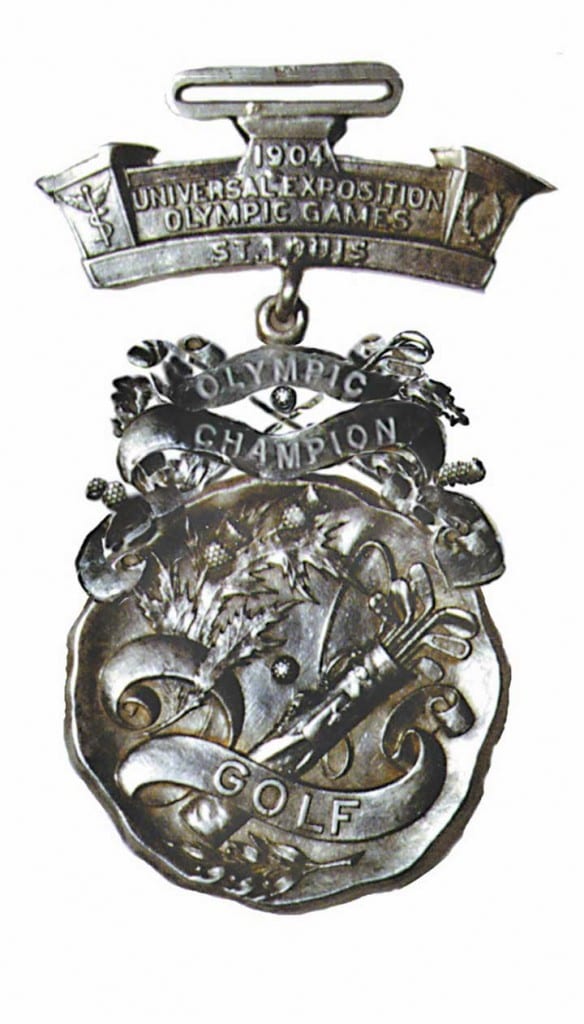
It was on the 15th Hole in the second round of the 1904 Olympic Golf finals at Glen Echo Country Club that Chandler Egan made his big mistake. The 21-year-old American had already secured his place in history earlier in the games, having earned a first-place trophy in the driving contest and a gold medal in the team event. But his youth wasn’t doing him any favors against his competitor. Twice Egan’s age, Canadian Amateur Champion George Lyon was hitting his long shots with surprising ease. Egan steadied his hands, pulled back his club—and hit his tee shot into the lake. Lyon won the men’s individual gold medal that day, and his legacy lives on at Glen Echo, the only golf course in the world that flies the Olympic flag. “We all consider ourselves caretakers of that history,” says Rob Stewart, Glen Echo general manager.
The oldest private 18-hole course west of the Mississippi River, Glen Echo opened in 1901. Its Olympic status stems from a scheduling snafu: originally, Chicago was supposed to host the 1904 games. But when the 1903 St. Louis World’s Fair was postponed until 1904, St. Louis successfully lobbied to host the Olympics as well, and Glen Echo founder Col. George McGrew secured the right to host the golf events. According to St. Louis golf historian Jim Healey, Glen Echo spent $60,000 to ready the course and clubhouse and mailed an information pamphlet to clubs around the world, hoping to attract their players to compete. St. Louis company Mermod-Jaccard Jewelers designed the trophies and medals.
Interestingly, 1904 was the second, and last, year golf was played in the Olympics. But the sport’s return in the 2016 summer games in Rio de Janeiro, Brazil, has Glen Echo gearing up to commemorate its history. “We have a big replica of a gold medal, it’s probably 3-feet tall,” Stewart says. “We’re going to have another one of those created, and a group of us plan on taking it down to Rio and presenting it to the golf course down there.” Stewart wants the U.S. golf team to be announced on the Glen Echo grounds during a weekend-long celebration, complete with a gala dinner and pro-am tournament. Stewart also hopes to host an exhibition match broadcasted on the Golf Channel and played in period attire with traditional hickory-shafted clubs.
Glen Echo’s Olympic history is a big draw for members, says Stewart. “We’ve got members who could belong to any club in St. Louis, and they choose to be here because of the heritage we have,” he explains. “The golf course is a great old course; they don’t build them like this anymore. A lot of the clubs were not far from here and they moved—thank God we didn’t.” Even a century later, the Olympic players would recognize 15 of the course’s holes, Stewart says. “No. 15, where Chandler Egan hit it into the water, is just like it was in 1904.”
By Rebecca Koenig
